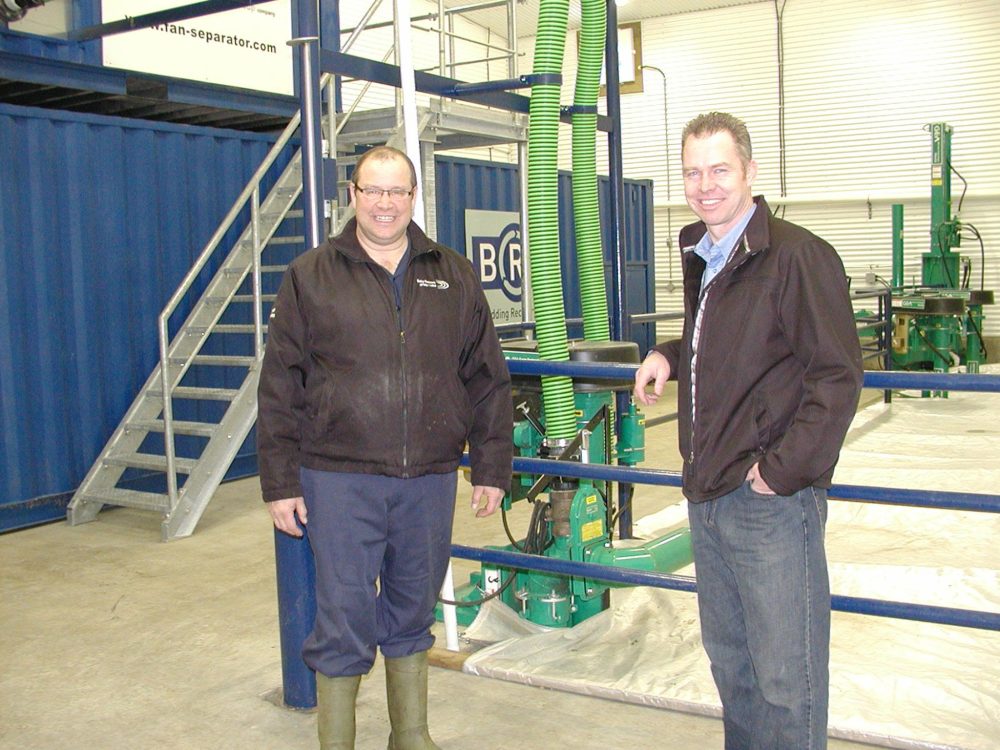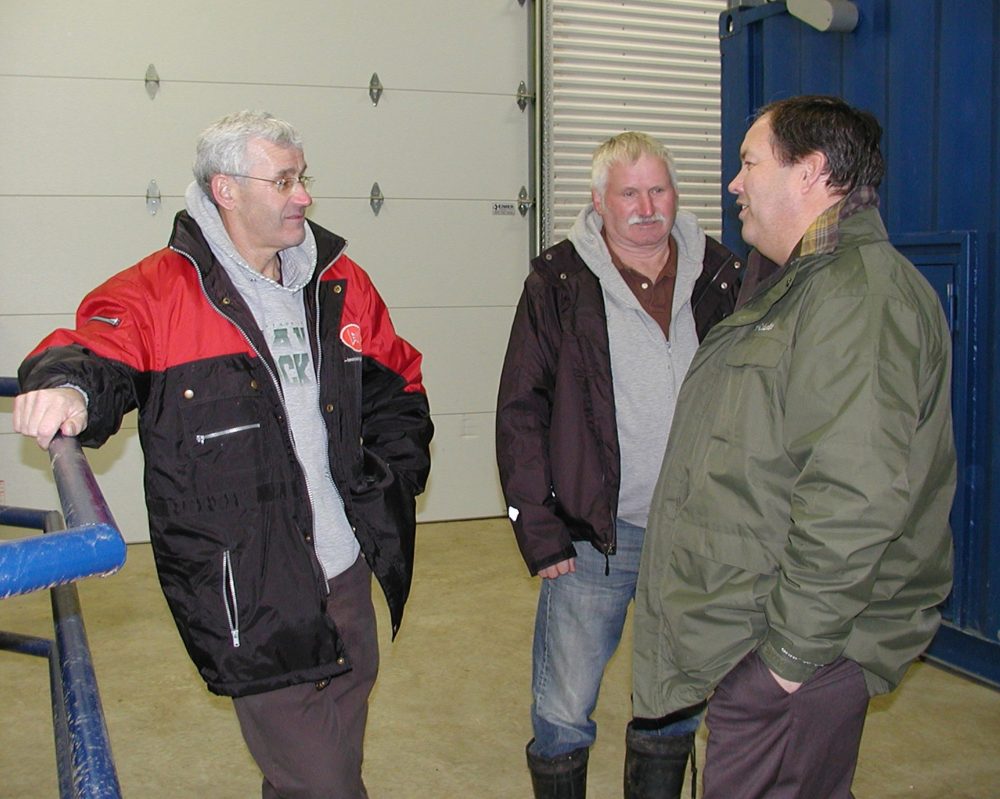COLUMN: Carillon Flashback April 25, 2013 – Holtmann brothers recycle manure at Rosser Holsteins
Advertisement
Henry and Tony Holtmann have never been prone to letting others try out new technology in the dairy industry and waiting a few years to make sure it works before taking the plunge themselves.
Since 1997, when the brothers built their first ultra modern dairy barn near Rosser, until eight weeks ago, when they flicked on the switch for their brand new bedding recovery unit, Rosser Holsteins has been leading the way for dairy farmers.
Mixing the latest technology and equipment for the recycling of manure to replace straw bedding with farm practises that stress the importance of staff in all aspects of their dairy, allows the Holtmanns to achieve a perfect balance between man and machine.

In March, 100 invited guests were given a tour of the facility, including a calf barn which incorporates a coated steel-grid flooring material, which eliminates the need for bedding and keeps the calves clean enough to be paraded in any 4-H competition at a moment’s notice.
The free-stall area is set up in a way to allow the Holtmann brothers to separate groups of milking cows according to production. This allows for an increase in the efficiency of delivering feed rations, Henry points out.
Feed rations are measured to match milk production and lower producers later in the lactation are fed differently than those at the peak of production, for example.
The newest barn is the brightest of the lot, with its bank of windows and special ventilation system designed to keep the cows cooler and more productive.
“It’s all about cow comfort. A comfortable cow is a productive cow.”
The new bedding system, although too new to have its success measured in the same way everything else on the farm is measured, is getting the thumbs-up from the Holtmanns and their herdspeople.
The manure separation system and its accompanying bedding recovery unit produces a dust-free bedding that eliminates another problem in the barn and increases herd health as well.
Its overall success will be determined by the impact the added comfort has on milk production in relation to the costs of operating the Bedding Recovery Unit.
Even the oldest part of the barn did not escape attention during the one-hour tour but the Holtmanns saved the best for last, as most of the guests were waiting to see the Bedding Recovery Unit (BRU) in action.
A FAN company representative from New York and Penner Farm Services manure separation specialist Maurice Melnyk were on hand to explain the benefits of the new technology and field questions.
The system uses a specially designed press screw separator to separate the large fibres from the manure. These are usually undigested parts of feed, such as corn silage or hay.
The solids are fed constantly to a 40-foot composting drum, which delivers a peat-like bedding product to a conveyor belt that moves it to the storage portion of the building next door. In the drum process, the manure reaches a temperature between 67 and 70 degrees Celsius which helps kill all the bacterial pathogens.
From there, the peat-like material it is delivered to the barn and the cycle begins again.
Holtmann points out that there is a cost to operate the new system, as it has added $1,000 per month to the hydro bill.
At the same time, there is a distinct saving in labor costs, not to mention the elimination of the need for 3,200 bales of straw.

Ben Holtmann, in charge of bedding, no longer has to grind straw bales one day a week and all the maintenance of the new equipment involves is “three grease nipples and a check to make sure everything is working.”
The manure separation unit is definitely low maintenance. A pump delivers manure from a 10-foot deep pit in the building housing the unit.
The system operates 24 hours a day and requires little attention other than pressure washing the screen once a month and replacing parts that wear, like the auger and the screen which lasts about six months.
The system produces two cubic metres per hour and needs 450 cows to make it practical. If there were under 250 cows there wouldn’t be enough manure produced.
“Our philosophy is to use a lot of bedding and that meant buying 3,800 straw bales at annual cost of $60,000.”
The bedding recovery system will reduce the necessary capacity of the lagoon and at the same time eliminate one of the ongoing arguments between the Holtmann brothers. Henry said Tony liked to use of a lot of the sub-ground straw bedding and that kept plugging up the manure pumps. That is no longer a problem with the recycled bedding.
Henry explains that the bedding operation is now Ben’s responsibility instead of having the milking staff taking care of it.
The Holtmanns liked what they saw, when they saw the bedding recycling equipment in action on a trip to the United States and wasted little time deciding to go with the major investment needed to get the set up at their farm.
Today they like what they see in their barn.
Being the first, doesn’t bother the Holtmanns a bit. They are used to it.
And at the end of the day, Henry sums up the philosophy at Rosser Holsteins in trying to constantly improve their operation.
“On your way home, you may be saying, those Holtmanns are nuts. But it’s been a fun ride, so that’s okay.”
